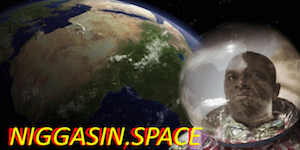

User Controls
Do circles objectively exist?
-
2021-10-29 at 11:45 PM UTC
-
2021-10-30 at 12:42 AM UTCYou cannot have perfect circles in reality. Neither can you have perfect lines or perfect triangles. This is not only because the world consists of molecules, but also because the universe is curved.
-
2021-10-30 at 12:47 AM UTC
Originally posted by DrugSmuggler You cannot have perfect circles in reality. Neither can you have perfect lines or perfect triangles. This is not only because the world consists of molecules, but also because the universe is curved.
Is it? Triangles and circles are still defined within non-euclidian geometries, they just have some different properties. -
2021-10-30 at 1:02 AM UTCin non-Euclidean geometries, on the surface of a sphere, the angles in a triangle can be between 180∘ and 540∘, while on a hyperbolic paraboloid (a "saddle"), it can be anywhere between 0∘ and 180∘.
-
2021-10-30 at 1:42 AM UTC
Originally posted by DrugSmuggler in non-Euclidean geometries, on the surface of a sphere, the angles in a triangle can be between 180∘ and 540∘, while on a hyperbolic paraboloid (a "saddle"), it can be anywhere between 0∘ and 180∘.
Yes, exactly. Ergo curvature of physical space does not mean that circles or triangles can not exist in reality. -
2021-10-30 at 3:47 AM UTCNerds
-
2021-10-30 at 9:32 AM UTC
-
2021-10-30 at 12:26 PM UTCLike "distance" itself is a position variable. How would you even nail down "equal distance"?
-
2021-10-30 at 1:08 PM UTC
-
2021-10-30 at 2:31 PM UTC
-
2021-10-30 at 2:32 PM UTC
-
2021-10-30 at 2:56 PM UTC
-
2021-10-30 at 3:51 PM UTC
-
2021-10-30 at 10:49 PM UTC
-
2021-10-30 at 10:53 PM UTC
-
2021-10-30 at 10:54 PM UTC
-
2021-10-31 at 12:06 AM UTC
-
2021-10-31 at 1:22 AM UTC
Originally posted by troon If the laws of physics break down at the scale of a Planck, then nothing can have curvature between any two 'points' at that scale. Even defining the absolute center of a circle is impossible.
I don’t think “the laws of physics break down at the scale of a Planck”, even if we work out what exactly that means and is true, would entail that “space time is granular”. Like maybe you can’t have a massive particle smaller than a Planck length, but that wouldn’t necessarily mean fields aren’t continuous.
Any in any case, “circle” is still a well defined concept in discrete spaces, which I assume is the same as what you mean by “granular”. -
2021-10-31 at 10:21 AM UTC
-
2021-10-31 at 12:53 PM UTCPlanck scale is just the point where general relativistic and quantum mechanical effects are of comparable magnitude. They produce different results at these scales and we don't know how to test such scales yet. So we cannot model stuff beyond the Planck scale yet.
That will require a theory of quantum gravity. And going beyond will require studying holography like in black holes.